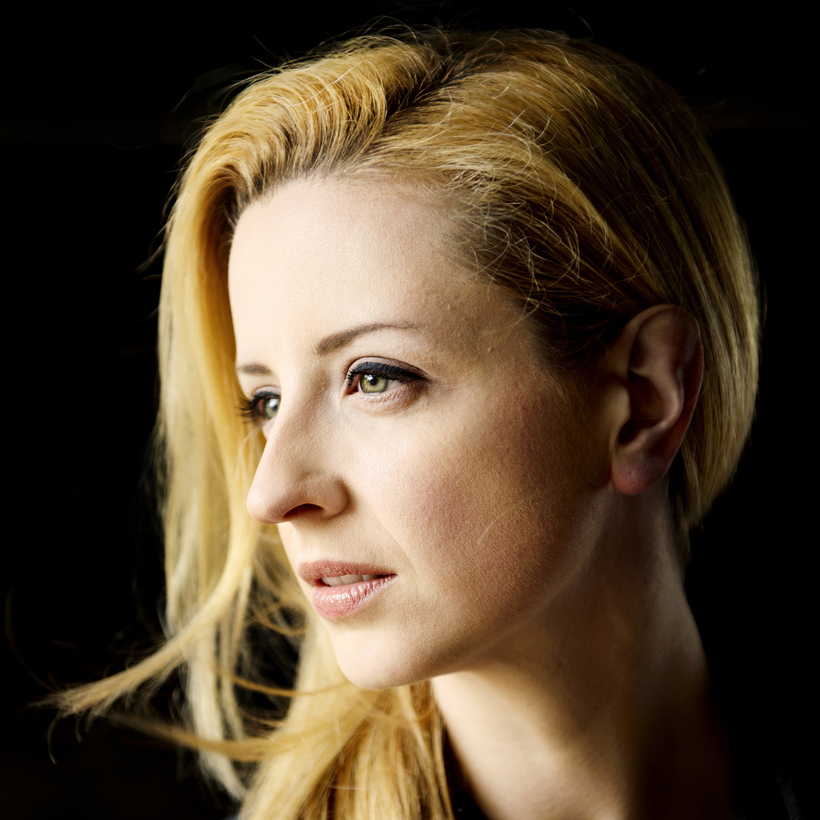Laura Wade was 17 when her first play was professionally produced. “That made me absolutely sure I wanted to be a playwright,” she says. “It was an overwhelmingly intoxicating experience.” Wade went on to study drama at Bristol University—“I tried acting, I tried directing, stage management, and a little bit of producing, which I was terrible at”—and, after graduating, picked up temp jobs in London before being taken on as a writer at the Soho Theatre, where her play Colder than Here was produced a year later.
But it was writing Posh, an acute play that cauterizes the English upper classes, for the Royal Court Theatre in 2010 that brought Wade international notoriety. Wade’s caustic script—later adapted into The Riot Club, a film starring the British Brat Pack of Douglas Booth, Sam Claflin, and Max Irons—harpooned the inner workings of the arrogant English elite, and audiences devoured it. Last year, Wade’s dissection of the saccharine 1950s ideal, Home, I’m Darling, earned her an Olivier, Britain’s highest honor in the theater. “Obviously those things completely don’t matter, until you get one. Then it does,” she says. “It … feels like an acknowledgment.”


